
Cass Sunstein has not made it a secret that he wishes to limit our ability to speak out against things for which we disagree. He has said that the internet should limit what is said and that if anything is found to be ‘untrue’ it should be prosecuted with penalties up to two years in prison.

We are all so thin skinned nowadays, and the forces of death are extending their reach throughout the entire government's bureaucracy. I have tried to demonstrate and illustrate all this with the words of others and Mr. Sunstein's own statements. I came to the conclusion that Cass Sunstein and his like-minded political proteges are smart but misguided enemies of Freedom. Mr. Cass Sunstein, like many others in Barack Obama's shadow government, does not understand the power of the force of the voice and the hearts of a heretofore free people.



The things espoused by Cass Sunstein, Ezekiel Emanuel, Peter Singer and so many more will be the greatest attack against Liberty in our nation's history, if they achieve their goals. But, their are millions who have not bowed the knew to Baal and we have been speaking loudly, as of late, and it shall not stop. Whether they like it or not, this is America, and we will not shut up. Mr. Sunstein, you hold a post that is unconstitutional, power that is abusive and views that run totally contrary to the views of the people of the United States of America. You will never shut us up!

Steven Clark Bradley
Author of Patriot Acts Nimrod Rising StillBorn! Probable Cause
Cass R. Sunstein - Yet Another Wacky Totalitarian Czar
Right Wing News July 23, 2009
What a coincidence — another one of Chairman Zero's "Czars" just happens to be a totalitarian  screwball. Cass Sunstein is the Moonbat Messiah's pick for Regulatory Czar. Considering the mountains of extraneous regulations that accrue in the District of Criminals with each passing day, he'll have many opportunities to apply his ideology. Knowledge is power introduces us to his point of view.
screwball. Cass Sunstein is the Moonbat Messiah's pick for Regulatory Czar. Considering the mountains of extraneous regulations that accrue in the District of Criminals with each passing day, he'll have many opportunities to apply his ideology. Knowledge is power introduces us to his point of view.
This phrase means that statists plan to do to
the word libertarian what they did to the word liberal.
![]() The idea of libertarian paternalism might seem to be an oxymoron, but it is both possible and legitimate for private and public institutions to affect behavior while also respecting freedom of choice. Often people's preferences are ill-formed, and their choices will inevitably be influenced by default rules, framing effects, and starting points. In these circumstances, a form of paternalism cannot be avoided. Equipped with an
The idea of libertarian paternalism might seem to be an oxymoron, but it is both possible and legitimate for private and public institutions to affect behavior while also respecting freedom of choice. Often people's preferences are ill-formed, and their choices will inevitably be influenced by default rules, framing effects, and starting points. In these circumstances, a form of paternalism cannot be avoided. Equipped with an  understanding of behavioral findings of bounded rationality and bounded self-control, libertarian paternalists should attempt to steer people's choices in welfare-promoting directions without eliminating freedom of choice. It is also possible to show how a libertarian paternalist might select among the possible options and to assess how much choice to offer.
understanding of behavioral findings of bounded rationality and bounded self-control, libertarian paternalists should attempt to steer people's choices in welfare-promoting directions without eliminating freedom of choice. It is also possible to show how a libertarian paternalist might select among the possible options and to assess how much choice to offer.
In other words, our authoritarian masters will be "libertarian" by letting us decide if we want our cot on the left side of the cell or the right side.
Cass gets even wackier:
 Representatives of animals should be able to bring private suits to ensure that anticruelty and related laws are actually enforced. Of course, any animals would be represented by human beings, just like any
Representatives of animals should be able to bring private suits to ensure that anticruelty and related laws are actually enforced. Of course, any animals would be represented by human beings, just like any  other litigant who lacks ordinary (human) competence; for example, the interests of children are protected by prosecutors, and also by trustees and guardians in private litigation brought on children's behalf. … If getting rid of the idea that animals are property is helpful in reducing suffering, then we should get rid of the idea that animals are property.
other litigant who lacks ordinary (human) competence; for example, the interests of children are protected by prosecutors, and also by trustees and guardians in private litigation brought on children's behalf. … If getting rid of the idea that animals are property is helpful in reducing suffering, then we should get rid of the idea that animals are property.
 If the government is going to treat citizens like farm animals, why shouldn't animals be treated like citizens? Sorry, hunters!
If the government is going to treat citizens like farm animals, why shouldn't animals be treated like citizens? Sorry, hunters!
This sounds especially ominous:
The cruel and abusive practices generally involved in contemporary farming are largely unregulated at the state level.
Now might be a good time to start stockpiling food. Maybe next week's crisis requiring immediate draconian legislation will be animal oppression, solvable only by federal seizure of all farms. Something similar kept Stalin in power for a generation.
Unsurprisingly, Ass doesn't like the Internet:
 We hardly need to imagine a world, however, in which people and institutions are being harmed by the rapid spread of damaging falsehoods via the Internet. We live in that world. What might be done to reduce the harm?
We hardly need to imagine a world, however, in which people and institutions are being harmed by the rapid spread of damaging falsehoods via the Internet. We live in that world. What might be done to reduce the harm?
Let me guess: Regulate online communication.
 Sure enough, Sunstein thinks bloggers should be held punishable for anything any commenter says that can't be proven to be true. FDR killed the Tenth Amendment; this Ivy League cockroach might help Chairman Zero do the same to the First.
Sure enough, Sunstein thinks bloggers should be held punishable for anything any commenter says that can't be proven to be true. FDR killed the Tenth Amendment; this Ivy League cockroach might help Chairman Zero do the same to the First.
Cass R. Sunstein is currently the Felix Frankfurter Professor of Law at Harvard Law School. Mr. Sunstein graduated in 1975 from Harvard College and in 1978 from Harvard Law School magna cum laude. After graduation, he clerked for Justice Benjamin Kaplan of the Massachusetts Supreme Judicial Court and Justice Thurgood Marshall of the U.S. Supreme Court, and then  he worked as an attorney-advisor in the Office of the Legal Counsel of the U.S. Department of Justice. He was a faculty member at the Law School from 1981 to 2008.
he worked as an attorney-advisor in the Office of the Legal Counsel of the U.S. Department of Justice. He was a faculty member at the Law School from 1981 to 2008.
Mr. Sunstein has testified before congressional committees on many subjects, and he has been involved in constitution-making and law reform activities in a number of nations, including Ukraine, Poland, China, South Africa, and Russia. A member of the American Academy of Arts and Sciences, Mr. Sunstein has been Samuel Rubin Visiting Professor of Law at Columbia, visiting professor of law at Harvard, vice-chair of the ABA Committee on Separation of Powers and Governmental Organizations, chair of the Administrative Law Section of the Association of American Law Schools, a member of the ABA Committee on the future of the FTC, and a member of the President's Advisory Committee on the Public Service Obligations of Digital Television Broadcasters.
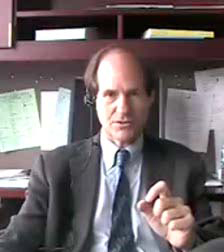 Mr. Sunstein is author of many articles and a number of books, including Republic.com (2001), Risk and ReasonThe Second Bill of Rights (2004), Laws of Fear: Beyond the Precautionary Principle (2005), Worst-Case Scenarios (2001), and Nudge: Improving Decisions about Health, Wealth, and Happiness (with Richard H. Thaler, 2008). He is now working on various projects involving the relationship between law and human behavior. (2002), Why Societies Need Dissent (2003),
Mr. Sunstein is author of many articles and a number of books, including Republic.com (2001), Risk and ReasonThe Second Bill of Rights (2004), Laws of Fear: Beyond the Precautionary Principle (2005), Worst-Case Scenarios (2001), and Nudge: Improving Decisions about Health, Wealth, and Happiness (with Richard H. Thaler, 2008). He is now working on various projects involving the relationship between law and human behavior. (2002), Why Societies Need Dissent (2003),

Books by Cass R. Sunstein:
 Behavioral Law and Economics (editor, Cambridge University Press, forthcoming, 2000)
Behavioral Law and Economics (editor, Cambridge University Press, forthcoming, 2000)
 One Case At A Time: Judicial Minimalism on the Supreme Court The Cost of Rights (with Stephen Holmes
One Case At A Time: Judicial Minimalism on the Supreme Court The Cost of Rights (with Stephen Holmes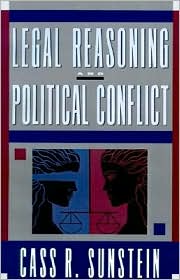 Legal Reasoning and Political Conflict (1998)
Legal Reasoning and Political Conflict (1998) Democracy and the Problem of Free Speech
Democracy and the Problem of Free Speech 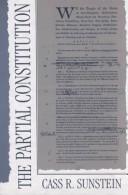 The Partial Constitution
The Partial Constitution  After the Rights Revolution: Reconceiving the Regulatory State
After the Rights Revolution: Reconceiving the Regulatory State  The Bill of Rights and the Modern State (co-editor with Geoffey R. Stone and Richard A. Epstein)
The Bill of Rights and the Modern State (co-editor with Geoffey R. Stone and Richard A. Epstein)  Radicals In Robes
Radicals In RobesSpeaking about the US Constitution
Barack Obama and Cass Sunstein has said:
 “It [the Constitution] is an imperfect document.”
“It [the Constitution] is an imperfect document.” Barack Obama
 “Why should we be governed by people long dead? … In any case, the group that ratified the Constitution included just a small subset of the society; it excluded all women, the vast majority of African Americans, many of those without property, and numerous others who were not permitted to vote.” Cass Sunstein
“Why should we be governed by people long dead? … In any case, the group that ratified the Constitution included just a small subset of the society; it excluded all women, the vast majority of African Americans, many of those without property, and numerous others who were not permitted to vote.” Cass Sunstein
 “We mutually pledge to each other our lives, our fortunes and our sacred honor.” Signers of The Declaration of Independence
“We mutually pledge to each other our lives, our fortunes and our sacred honor.” Signers of The Declaration of Independence
Have Barack Obama or Cass Sunstein pledging their lives, their fortunes or their sacred honor to preserve the US.

Quotes from the Anti-Constitutional mind of Cass Sunstein
Second Amendment “Consider the view that the Second Amendment confers an individual right to own guns. The view is respectable, but it may be wrong, and prominent specialists reject it on various grounds.”
“Consider the view that the Second Amendment confers an individual right to own guns. The view is respectable, but it may be wrong, and prominent specialists reject it on various grounds.”
 “The National Association of Broadcasters and others with similar economic interests typically use the First Amendment in precisely the same way the National Rifle Association uses the Second Amendment. We should think of the two camps as jurisprudential twins.”
“The National Association of Broadcasters and others with similar economic interests typically use the First Amendment in precisely the same way the National Rifle Association uses the Second Amendment. We should think of the two camps as jurisprudential twins.”
Hunting & Animal Rights
“We ought to ban hunting”
 “[Humans’] willingness to subject animals to unjustified suffering will be seen … as a form of unconscionable barbarity… morally akin to slavery and the mass extermination of human beings.”
“[Humans’] willingness to subject animals to unjustified suffering will be seen … as a form of unconscionable barbarity… morally akin to slavery and the mass extermination of human beings.”
“A legislative effort to regulate broadcasting in the interest of democratic principles should not be seen as an abridgment of the free speech guarantee.”
"I have argued in favor of a reformulation of the first amendment. The overriding goal of the reformulation is to reinvigorate processes of democratic deliberation, by ensuring greater attention to public issues and greater diversity of views.”
“Consider the “fairness doctrine,” now largely abandoned but once requiring radio and television broadcasters: …[I]n light of astonishing economic and technological changes, we must doubt whether, as interpreted, the constitutional guarantee of free speech is adequately serving democratic goals. It is past time for a large-scale reassessment of the appropriate role of the First Amendment in the democratic process.”
Taxes
 In what sense in the money in our pockets and bank accounts fully ‘ours’? Did we earn it by our own autonomous efforts? Could we have inherited it without the assistance of probate courts? Do we save it without the support of bank regulators?
In what sense in the money in our pockets and bank accounts fully ‘ours’? Did we earn it by our own autonomous efforts? Could we have inherited it without the assistance of probate courts? Do we save it without the support of bank regulators? Could we spend it if there were no public officials to coordinate the efforts and pool the resources of the community in which we live?… Without taxes there would be no liberty. Without taxes there would be no property. Without taxes, few of us would have any assets worth defending. [It is] a dim fiction that some people enjoy and exercise their rights without placing any burden whatsoever on the public fisc. … There is no liberty without dependency. That is why we should celebrate tax day …”
Second Bill of Rights
“My major aim in this book is to uncover an important but neglected part of America’s heritage: the idea of a second bill of rights. In brief, the second bill attempts to protect both opportunity and security, by creating rights to employment, adequate food and clothing, decent shelter, education, recreation, and medical care.”
“Much of the time, the United States seems to have embraced a confused and pernicious form of individualism. This approach endorses rights of private property and freedom of contract, and respects political liberty, but claims to distrust “government intervention” and insists that people must fend for themselves. This form of so-called individualism is incoherent, a tangle of confusions.”
“For better or worse, the Constitution’s framers gave no thought to including social and economic guarantees in the bill of rights.”
Cass Sunstein's despicable ideas on regulating the internet
American Thinker - Ed Lasky July 12, 2009
 In the past, we have seen Barack Obama and his supporters attempt to chill any sort of scrutiny or criticism of him. Many of his records - whether they are transcripts from Occidental or Columbia - have not been released. He lost his senior thesis (on Soviet nuclear
In the past, we have seen Barack Obama and his supporters attempt to chill any sort of scrutiny or criticism of him. Many of his records - whether they are transcripts from Occidental or Columbia - have not been released. He lost his senior thesis (on Soviet nuclear  disarmament) from Columbia University (how likely was that to happen, given that he felt his own life was important enough to write an autobiography in his young 20s), and his records from his time in the Illinois state senate were "lost".
disarmament) from Columbia University (how likely was that to happen, given that he felt his own life was important enough to write an autobiography in his young 20s), and his records from his time in the Illinois state senate were "lost".
Having records "disappeared" (as well as ditching embarrassing people from his past under the bus) was just one aspect of attempts to avoid scrutiny. Another manifestation of this dynamic, was the constant use during the campaign of the "race card" to brand any critics as racists or smear artists (even Sean Wilent of the liberal The New Republic noticed this strategy). One more manifestation of this phenomenon was his campaign's use of supporters to bombard radio hosts with calls to jam lines when critics of Barack Obama appeared on radio call in shows. The "authoritarian tactics being employed by the Obama campaign to stifle and intimidate its critics" were on full display. Of course, the specter of the Fairness Doctrine being passed by Congress is also another card in the deck meant to chill criticism of Barack Obama and his fellow travelers.
One more manifestation of this phenomenon was his campaign's use of supporters to bombard radio hosts with calls to jam lines when critics of Barack Obama appeared on radio call in shows. The "authoritarian tactics being employed by the Obama campaign to stifle and intimidate its critics" were on full display. Of course, the specter of the Fairness Doctrine being passed by Congress is also another card in the deck meant to chill criticism of Barack Obama and his fellow travelers. Now comes a more insidious form of thought control a la 1984, courtesy of long-time friend and probable new regulatory czar Cass Sunstein (who recently married another long-time confidant of Barack Obama's, foreign policy guru Samantha Power). Kyle Smith writes in the New York Post about one aspect of Sunstein's ideology:
Now comes a more insidious form of thought control a la 1984, courtesy of long-time friend and probable new regulatory czar Cass Sunstein (who recently married another long-time confidant of Barack Obama's, foreign policy guru Samantha Power). Kyle Smith writes in the New York Post about one aspect of Sunstein's ideology:
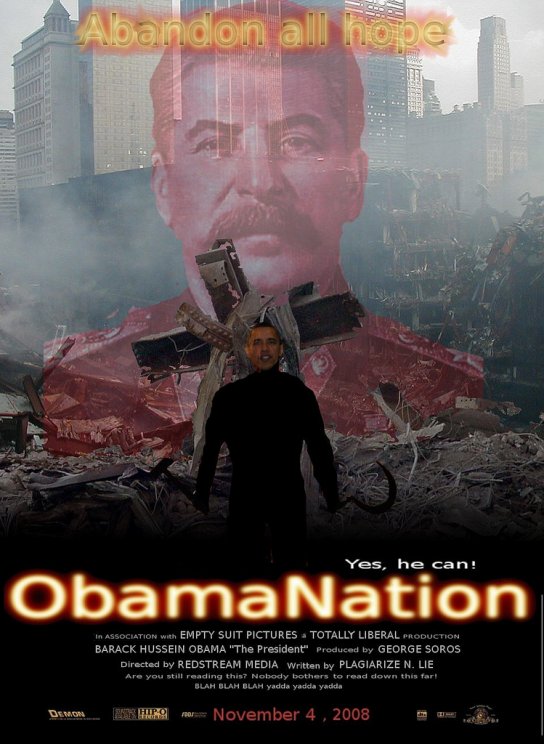 Cass Sunstein, a Harvard Law professor who has been appointed to a shadowy post that will grant him powers that are merely mind-boggling, explicitly supports using the courts to impose a "chilling effect" on speech that might hurt someone's feelings. He thinks that the bloggers have been rampaging out of control and that new laws need to be written to corral them.
Cass Sunstein, a Harvard Law professor who has been appointed to a shadowy post that will grant him powers that are merely mind-boggling, explicitly supports using the courts to impose a "chilling effect" on speech that might hurt someone's feelings. He thinks that the bloggers have been rampaging out of control and that new laws need to be written to corral them.
Advance copies of Sunstein's new book, "On Rumors: How Falsehoods Spread, Why We Believe Them, What Can Be Done," have gone out to reviewers ahead of its September publication date, but considering the prominence with which Sunstein is about to be endowed, his worrying views are fair game now. Sunstein is President Obama's choice to head the White House Office of Information and Regulatory Affairs. It's the bland titles that should scare you the most.
In "On Rumors," Sunstein reviews how views get cemented in one camp even when people are presented with persuasive evidence to the contrary. He worries that we are headed for a future in which "people's beliefs are a product of social networks working as echo chambe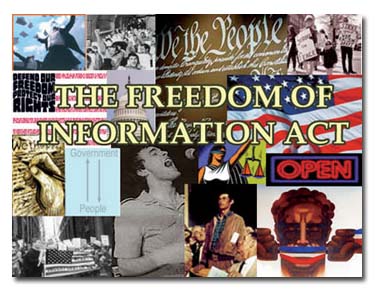 rs in which false rumors spread like wildfire." That future, though, is already here, according to Sunstein. "We hardly need to imagine a world, however, in which people and institutions are being harmed by the rapid spread of damaging falsehoods via the Internet," he writes. "We live in that world. What might be done to reduce the harm?"
rs in which false rumors spread like wildfire." That future, though, is already here, according to Sunstein. "We hardly need to imagine a world, however, in which people and institutions are being harmed by the rapid spread of damaging falsehoods via the Internet," he writes. "We live in that world. What might be done to reduce the harm?"
Sunstein's book is a blueprint for online censorship as he wants to hold blogs and web hosting services accountable for the remarks of commenters on websites while altering libel laws to make it easier to sue for spreading "rumors."
Smith notes that bloggers and others would be forced to remove such criticism unless they could be "proven". The litigation expense would be daunting; the time necessary to defend a posting (or an article) would work to the benefit of the public figure being criticized since the delay would probably allow the figure to win an election before the truth "won  out". The mere threat of retaliatory actions would be enough to dissuade many commentators from daring to issue a word of criticism or skepticism.
out". The mere threat of retaliatory actions would be enough to dissuade many commentators from daring to issue a word of criticism or skepticism.
Often bloggers raise issues to encourage others (perhaps with more resources) to further investigate issues. Skepticism about candidates often begins on the web or talk radio-these steps (so vital to a democracy) would be chilled should Sunstein's ideas be put into practice. One should not dismiss that prospect: this is the most ideologically driven administration in many years. A Democratic Congress willing to do Barack Obama's bidding will not serve as a check on Sunstein (or Obama). Democrats know that criticism  over their conduct often emerges from the web and talk radio since traditional media is so reliably in their corner. Sunstein did not join the administration for a title or to be close to his wife. He joined, as have other ideologues throughout history, to put his ideas into practice.
over their conduct often emerges from the web and talk radio since traditional media is so reliably in their corner. Sunstein did not join the administration for a title or to be close to his wife. He joined, as have other ideologues throughout history, to put his ideas into practice.
We should note that another step is being taken by Congress that might chill free speech on the internet. Representative Linda Sanchez from California is behind the Megan Meier Cyber Bullying Prevention Act, an effort to impose regulations on the internet. Eugene Volokh, the brilliant law  professor who founded Volokh Conspiracy (one of the leading, and most stimulating, blogs) noted the overly broad language of the bill. And, how it can be used by a politician to stifle criticism.
professor who founded Volokh Conspiracy (one of the leading, and most stimulating, blogs) noted the overly broad language of the bill. And, how it can be used by a politician to stifle criticism.
Federal Felony To Use Blogs, the Web, Etc. To Cause Substantial Emotional Distress Through "Severe, Repeated, and Hostile" Speech?
That's what a House of Representatives bill, proposed by Rep. Linda T. Sanchez and 14 others, would do. Here's the relevant text:
Whoever transmits in interstate or foreign commerce any communication, with the intent to coerce, intimidate, harass, or cause substantial emotional distress to a person, using electronic means to support severe, repeated, and hostile behavior, shall be fined under this title or imprisoned not more than two years, or both....
["Communication"] means the electronic transmission, between or among points specified by the user, of information of the user's choosing, without change in the form or content of the information as sent and received; ... ["Electronic means"] means any equipment dependent on electrical power to access an information service, including email, instant messaging, blogs, websites, telephones, and text messages.
["Electronic means"] means any equipment dependent on electrical power to access an information service, including email, instant messaging, blogs, websites, telephones, and text messages.
He questions the motives of the lawmakers supporting such a constitutionally vague bill which would make just about any criticism made by blogs subject to fines or imprisonment.
As we should question the motives not just of them but of Barack Obama and his close friend, Cass Sunstein.
MEDIA MATTERS
U.S. regulatory czar nominee wants Net 'Fairness Doctrine'
Cass Sunstein sees Web as anti-democratic, proposed 24-hour delay on sending e-mail
Posted: April 27, 2009
8:41 pm Eastern
© 2009 WorldNetDaily
 WASHINGTON – Barack Obama's "Regulatory Czar" has advocated a "Fairness Doctrine" for the that would require opposing opinions be linked and also has suggested angry e-mails should be prevented from being sent by technology that would require a 24-hour cooling off period.
WASHINGTON – Barack Obama's "Regulatory Czar" has advocated a "Fairness Doctrine" for the that would require opposing opinions be linked and also has suggested angry e-mails should be prevented from being sent by technology that would require a 24-hour cooling off period.
 The revelations about Cass Sunstein, Obama's friend from the University of Chicago Law School and nominee to head the White House Office of Information and Regulatory Affairs, come in a new book by Brad O'Leary, "Shut Up, America! The End of Free Speech." OIRA will oversee regulation throughout the U.S. government.
The revelations about Cass Sunstein, Obama's friend from the University of Chicago Law School and nominee to head the White House Office of Information and Regulatory Affairs, come in a new book by Brad O'Leary, "Shut Up, America! The End of Free Speech." OIRA will oversee regulation throughout the U.S. government.
 Sunstein also has argued in his prolific literary works that the Internet is anti-democratic because of the way users can filter out information of their own choosing.
Sunstein also has argued in his prolific literary works that the Internet is anti-democratic because of the way users can filter out information of their own choosing.
"A system of limitless individual choices, with respect to communications, is not necessarily in the interest of citizenship and self-government," he wrote. "Democratic efforts to reduce the resulting problems ought not be rejected in freedom's name."
Sunstein first proposed the notion of imposing mandatory "electronic sidewalks" for the Net. These "sidewalks" would display links to opposing viewpoints. Adam Thierer, senior fellow and director of the Center for Digital Media Freedom at the Progress and Freedom Center, has characterized the proposal as "The Fairness Doctrine for the Internet."
"Apparently in Sunstein's world, people have many rights, but one of them, it seems, is not the right to be left alone or seek out the opinions one desires," Thierer wrote.
Later, Sunstein rethought his proposal, explaining that it would be "too difficult to regulate [the Internet] in a way that would respond to those  concerns." He also acknowledged that it was "almost certainly unconstitutional."
concerns." He also acknowledged that it was "almost certainly unconstitutional."
Perhaps Sunstein's most novel idea regarding the Internet was his proposal, in his book "Nudge," written with Richard Thaler, for a "Civility Check" for e-mails and other online communications.
 "The modern world suffers from insufficient civility," they wrote. "Every hour of every day, people send angry e-mails they soon regret, cursing people they barely know (or even worse, their friends and loved ones). A few of us have learned a simple rule: don't send an angry e-mail in the heat of the moment. File it, and wait a day before you send it. (In fact, the next day you may have calmed down so much that you forget even to look at it. So much the better.) But many people either haven't learned the rule or don’t always follow it. Technology could easily help. In fact, we have no doubt that technologically savvy types could design a helpful program by next month."
"The modern world suffers from insufficient civility," they wrote. "Every hour of every day, people send angry e-mails they soon regret, cursing people they barely know (or even worse, their friends and loved ones). A few of us have learned a simple rule: don't send an angry e-mail in the heat of the moment. File it, and wait a day before you send it. (In fact, the next day you may have calmed down so much that you forget even to look at it. So much the better.) But many people either haven't learned the rule or don’t always follow it. Technology could easily help. In fact, we have no doubt that technologically savvy types could design a helpful program by next month."
That's where the "Civility Check" comes in.
"We propose a Civility Check that can accurately tell whether the e-mail you're about to send is angry and caution you, 'warning: this appears to be an uncivil e-mail. do you really and truly want to send it?'" they wrote. "(Software already exists to detect  foul language. What we are proposing is more subtle, because it is easy to send a really awful e-mail message that does not contain any four-letter words.) A stronger version, which people could choose or which might be the default, would say, 'warning: this appears to be an uncivil e-mail. this will not be sent unless you ask to resend in 24 hours.' With the stronger version, you might be able to bypass the delay with some work (by inputting, say, your Social Security number and your grandfather’s birth date, or maybe by solving some irritating math problem!)."
foul language. What we are proposing is more subtle, because it is easy to send a really awful e-mail message that does not contain any four-letter words.) A stronger version, which people could choose or which might be the default, would say, 'warning: this appears to be an uncivil e-mail. this will not be sent unless you ask to resend in 24 hours.' With the stronger version, you might be able to bypass the delay with some work (by inputting, say, your Social Security number and your grandfather’s birth date, or maybe by solving some irritating math problem!)."
 Sunstein's nomination to the powerful new position will require Senate approval. He is almost certain to face other questions about his well-documented controversial views:
Sunstein's nomination to the powerful new position will require Senate approval. He is almost certain to face other questions about his well-documented controversial views:
- In a 2007 speech at Harvard he called for banning hunting in the U.S.
- In his book "Radicals in Robes," he wrote: "[A]lmost all gun control legislation is constitutionally fine. And if the Court is right, then fundamentalism does not justify the view that the Second Amendment protects an individual right to bear arms."
 In his 2004 book, "Animal Rights," he wrote: "Animals should be permitted to bring suit, with human beings as their representatives …"
In his 2004 book, "Animal Rights," he wrote: "Animals should be permitted to bring suit, with human beings as their representatives …" - In "Animal Rights: A Very Short Primer," he wrote "[T]here should be extensive regulation of the use of animals in entertainment, in scientific experiments, and in agriculture."

 "As one of America's leading constitutional scholars, Cass Sunstein has distinguished himself in a range of fields, including administrative law and policy, environmental law, and behavioral economics," said Obama at his nomination of his regulatory czar. "He is uniquely qualified to lead my administration's regulatory reform agenda at this crucial stage in our history. Cass is not only a valued adviser, he is a dear friend and I am proud to have him on my team." Barack Obama
"As one of America's leading constitutional scholars, Cass Sunstein has distinguished himself in a range of fields, including administrative law and policy, environmental law, and behavioral economics," said Obama at his nomination of his regulatory czar. "He is uniquely qualified to lead my administration's regulatory reform agenda at this crucial stage in our history. Cass is not only a valued adviser, he is a dear friend and I am proud to have him on my team." Barack Obama
"It's hard to imagine President Obama nominating a more dangerous candidate for regulatory czar than Cass Sunstein," he says. "Not only is Sunstein an animal-rights radical, but he also seems to have a serious  problem with our First Amendment rights. Sunstein has advocated everything from regulating the content of personal e-mail communications, to forcing nonprofit groups to publish information on their websites that is counter to their beliefs and mission. Of course, none of this should be surprising from a man who has said that 'limitless individual choices, with respect to communications, is not necessarily in the interest of citizenship and self-government.' If it were up to Obama and Sunstein, everything we read online – right down to our personal e-mail communications – would have to be inspected and approved by the federal government."
problem with our First Amendment rights. Sunstein has advocated everything from regulating the content of personal e-mail communications, to forcing nonprofit groups to publish information on their websites that is counter to their beliefs and mission. Of course, none of this should be surprising from a man who has said that 'limitless individual choices, with respect to communications, is not necessarily in the interest of citizenship and self-government.' If it were up to Obama and Sunstein, everything we read online – right down to our personal e-mail communications – would have to be inspected and approved by the federal government."
Name: Cass R. Sunstein
Work Address: University of Chicago Law School,
1111 East 60th Street, Chicago, Illinois, 60637
Telephone: ![]()
![]()
![]()
![]()
![]()
![]()
![]()
![]()
![]() 773-702-9498 (business)
773-702-9498 (business)
Fax: 773-702-0730 (business)
email: Cass_Sunstein@law.uchicago.edu
Want to read a novel that is so real
you'll understand why we are living in very strange days?
Ride the storm of Nimrod Rising!
 Have you ever felt that the world was guided in ways that are beyond man’s control? The constant changes in the world since the time of Nimrod 4000 years ago until today and all the events that have shaken the world have been to bring the universe back into the hands of
Have you ever felt that the world was guided in ways that are beyond man’s control? The constant changes in the world since the time of Nimrod 4000 years ago until today and all the events that have shaken the world have been to bring the universe back into the hands of  the Prince of Darkness, Lucia, a world that he had ruled with his Watchers before it was all ripped from his grasp when man was created. Nimrod Rising paints a diabolical picture of how the Prince of Darkness executes his evil plot to take the world back by force and destroy civilization in the process. From the Great Builder Nimrod in 4000 BC to today, 666 generations later, you can ride the storm of Nimrod Rising and experience the death of a world and the birth pangs of another. You will swear it is really upon us!
the Prince of Darkness, Lucia, a world that he had ruled with his Watchers before it was all ripped from his grasp when man was created. Nimrod Rising paints a diabolical picture of how the Prince of Darkness executes his evil plot to take the world back by force and destroy civilization in the process. From the Great Builder Nimrod in 4000 BC to today, 666 generations later, you can ride the storm of Nimrod Rising and experience the death of a world and the birth pangs of another. You will swear it is really upon us!From The Mind of Steven Clark Bradley
Steven Clark Bradley @ Inspired Author
Steven Clark Bradley - Nikki Leigh Virtual Book Tours
Steven Clark Bradley @ The Power of The Written Word
Steven Clark Bradley @ Communati.com
Steven Clark Bradley @ Blogtalk Radio.com
Steven Clark Bradley @ Facebook
Steven Clark Bradley @ Twitter.com
Steven Clark Bradley @ Xanga.com
Steven Clark Bradley @ Amazon.com
Steven Clark Bradley @ yuku.com
Steven Clark Bradley @ Bookmarket.com
Steven Clark Bradley @ Published Authors.com
Steven Clark Bradley @ Word That Work
Steven Clark Bradley @ Goodreads.com
Steven Clark Bradley @ Myspace.com




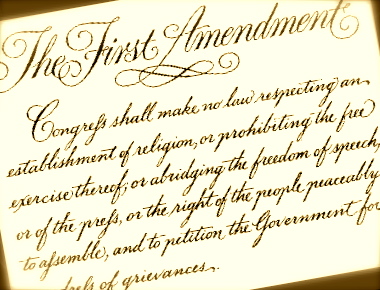

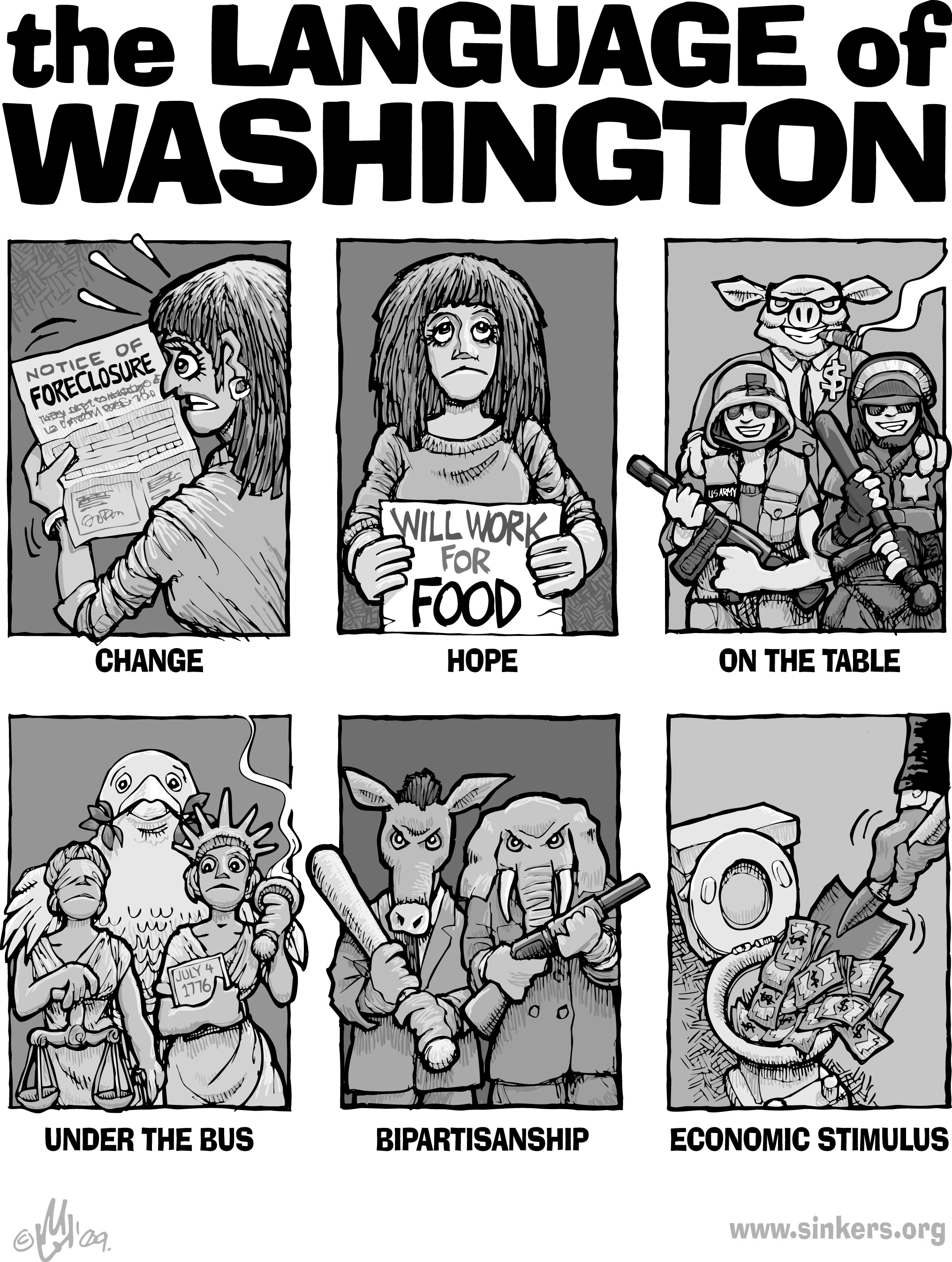
No comments:
Post a Comment